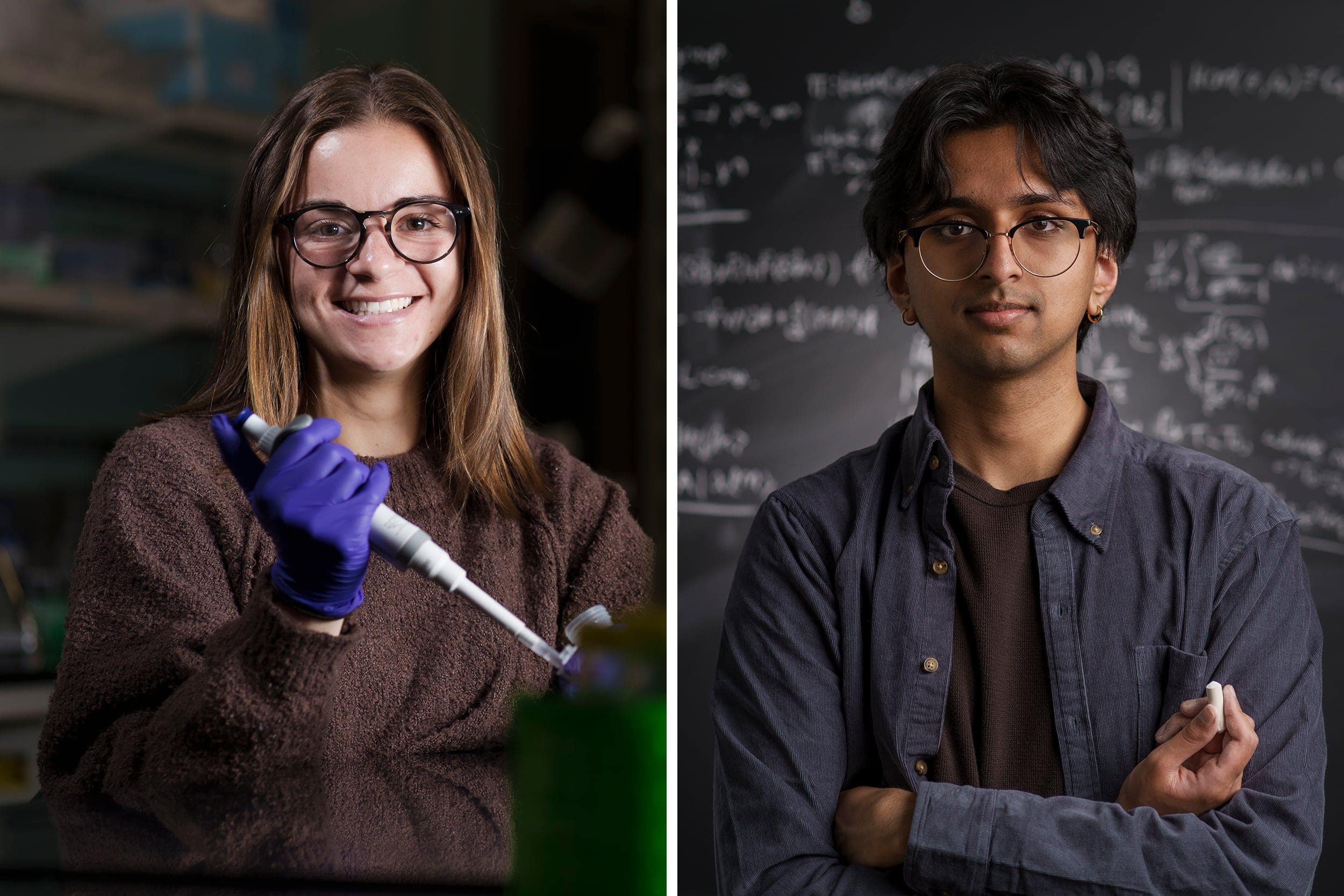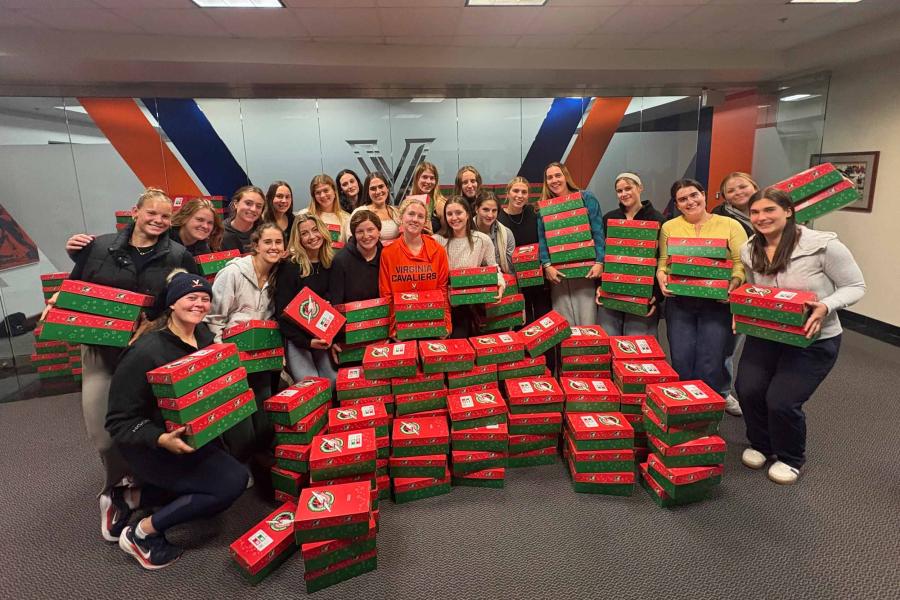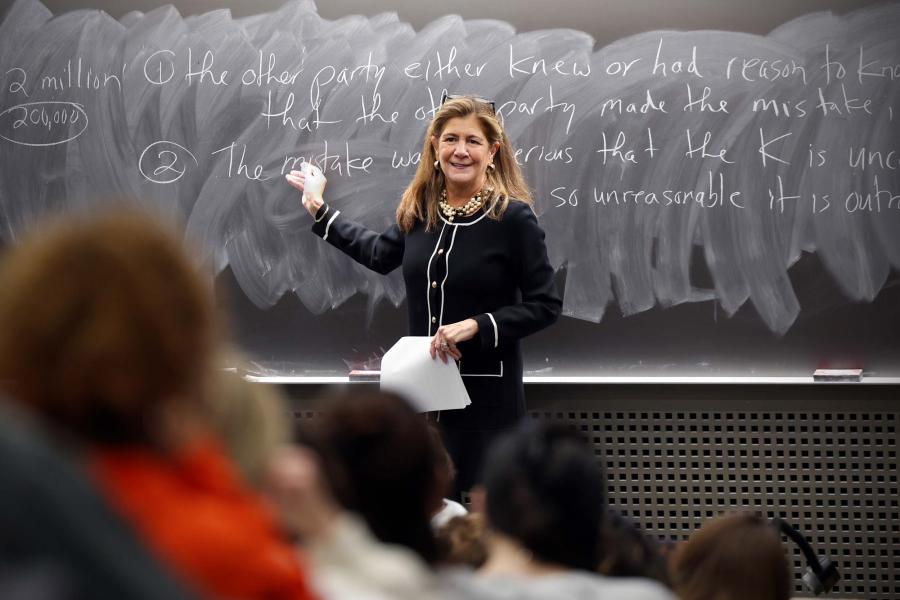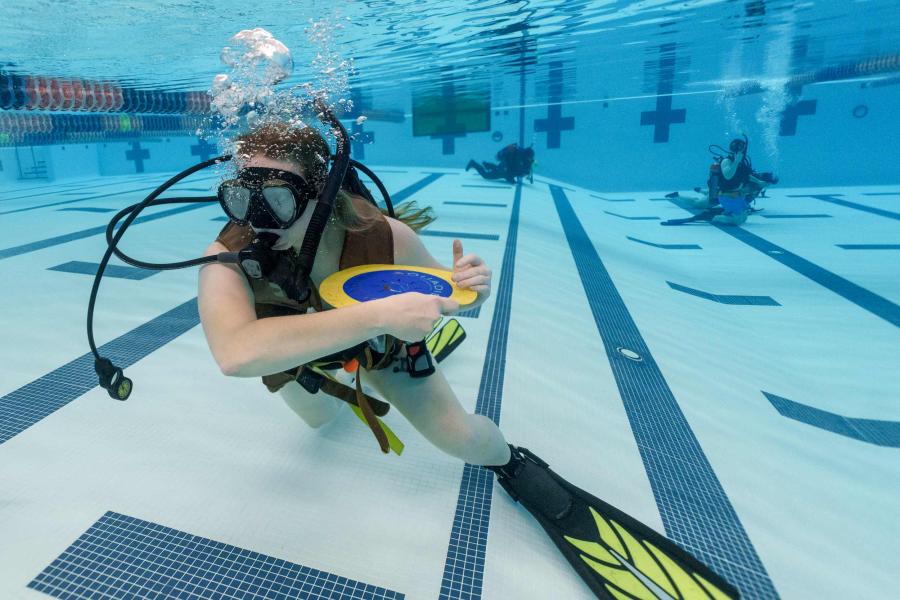Two University of Virginia student researchers have been named Goldwater Scholars for their work in merging scientific fields.
Dorothy Beck, a second-year biomedical engineering student, and Ishaan Patel, a third-year biochemistry and physics major, are among the 441 Goldwater Scholars for 2025.
The Barry Goldwater Scholarship and Excellence in Education Foundation, an ongoing partnership with UWorld and the U.S. Department of Defense National Defense Education Programs, announced the awards. Each scholarship covers tuition, fees, books, and room and board up to a maximum of $7,500 per full academic year.
The University nominated both students for the scholarships through a process administered by the Office of Citizen Scholar Development, home to fellowships and undergraduate research.
Dorothy Beck
Beck, of Denver, said she has long loved science.
“As I got older, I realized that scientific disciplines such as biology, mathematics and physics are not isolated fields, but are deeply and intricately connected – each incomplete without the others,” she said. “Biomedical engineering exists at the intersection of these fields, weaving together the precision of engineering with the complexity of unpredictable living systems, to have a tangible impact on human health.”
Beck’s research combines computer-modeled disease cells with biological materials to study their reactions and gain an understanding into how diseases work.
“I am particularly focused on how my model can help us design and optimize these hydrogel scaffolds to form vasculature, with applications ranging from wound healing to cancer,” she said.
By building and validating models, Beck’s work has the potential to achieve at least two key breakthroughs.
“First, we might be able to use a model to predict how material design will influence vascular growth. This would be important for designing better regenerative materials,” Chris Highley, an assistant professor of biomedical engineering and chemical engineering, said. “Second, it might also help describe biological responses to material systems. This could be important in understanding healing responses to implanted materials.”
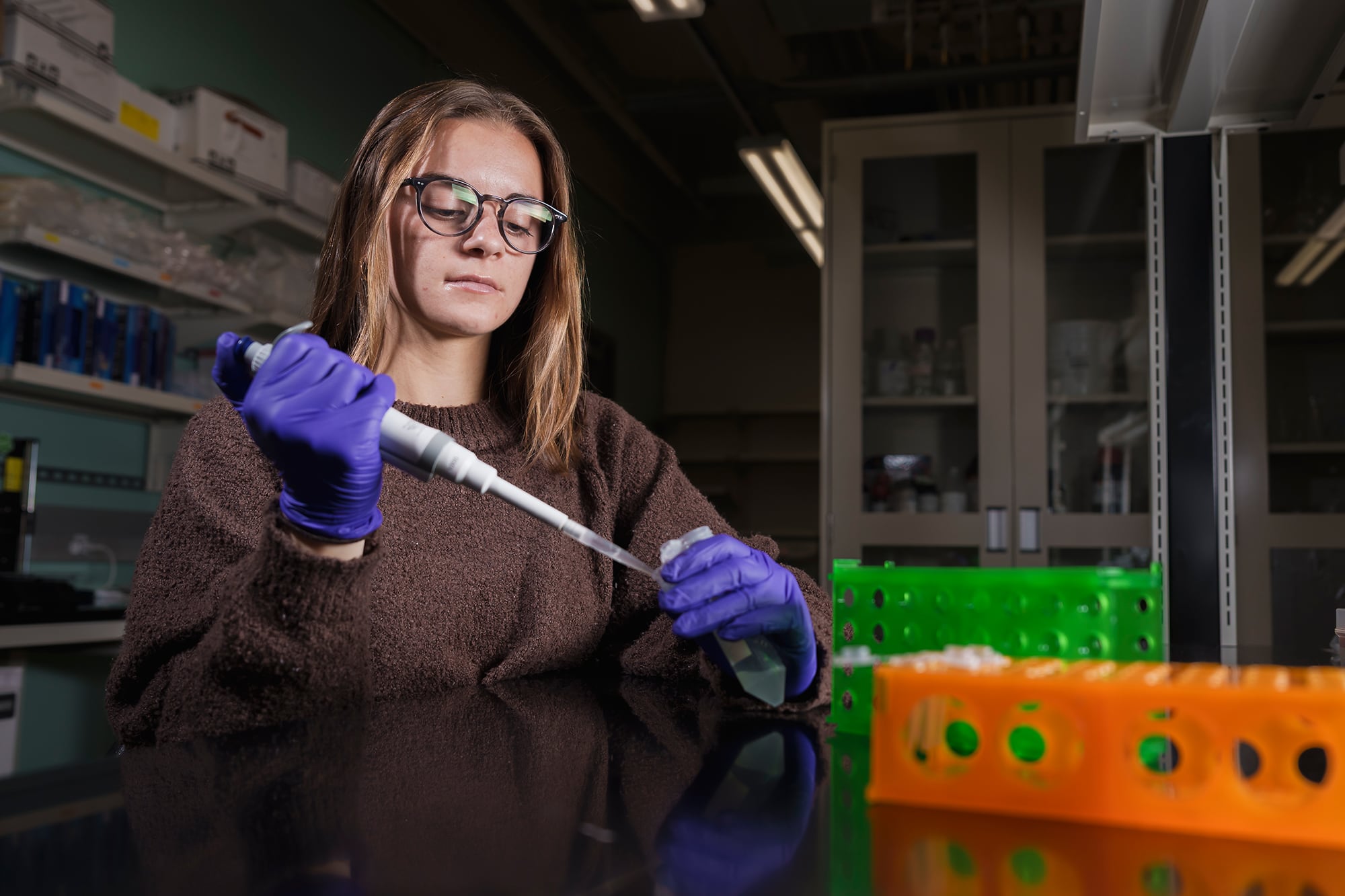
Beck sees scientific disciplines such as biology, mathematics and physics not as isolated fields, but deeply and intricately connected. (Photo by Lathan Goumas, University Communications)
Beck is also leading a multi-university study examining the implications of generative artificial intelligence in biomedical engineering education.
“This collaboration resulted from my research presentation at a national conference, and we are working collaboratively to assess student perceptions and the educational impact of generative AI in agent-based modeling,” Beck said.
Biomedical engineering professor Shayn Peirce-Cottler, Beck’s mentor, described her as “a powerhouse with unlimited potential.”
“She has a knack for identifying connections between fields and a driving curiosity that fuels her tireless energy to design, create and experiment,” Peirce-Cottler said. “She is fearless when it comes to testing out her ideas in the lab and she puts in the long hours, even on weekends, to push her creative ideas from conception to fruition. Most people who meet her think she’s a senior graduate student because her knowledge is so deep and she has already accomplished so much in the lab.”
Beck said receiving a Goldwater Scholarship affirms her decision to pursue a research career and reinforces that she is on a path to making a meaningful impact in science and engineering.
“I am really excited to meet generations of students and researchers who have also received this prestigious award,” Beck said. “This community of scholars includes some of the most gifted scientists across the country, and I look forward to connecting with peers across scientific disciplines.”
Outside the lab, Beck is a resident adviser, organizes outreach for the Society of Women Engineers, works with local middle and high school students, and volunteers with UVA Health through Madison House.
Ishaan Patel
Patel, of Vienna, said he sees the Goldwater Scholarship as a reaffirming boost to his research career. He is pursuing bachelor’s degrees in biochemistry and physics, with a minor in mathematics.
Patel fell in love with chemistry after taking a course with W. Dean Harman, UVA’s William R. Kenan Jr. Professor of Chemistry.
“Physics came later,” Patel said. “I realized in my second year that I didn’t really understand the basis upon which the chemistry I was so interested in was built. And so I felt that to be a better chemist, I should have a more fundamental understanding of quantum mechanics.”
Patel’s chemistry research explores how to convert common aromatic compounds, such as benzene, into more functional molecules using a tungsten complex, though he’s now finding himself transitioning to more theoretical work in physics.
“Math, physics and chemistry all conspire nicely in the field of condensed-matter physics,” Patel said. “Condensed matter physics is the study of everyday objects, such as solid state materials and liquids, and you don't need a 17-mile-long particle collider to get data; a tabletop apparatus will suffice most of the time.”
Patel uses his chemistry background to gain intuition on physical systems, which help guide his research.
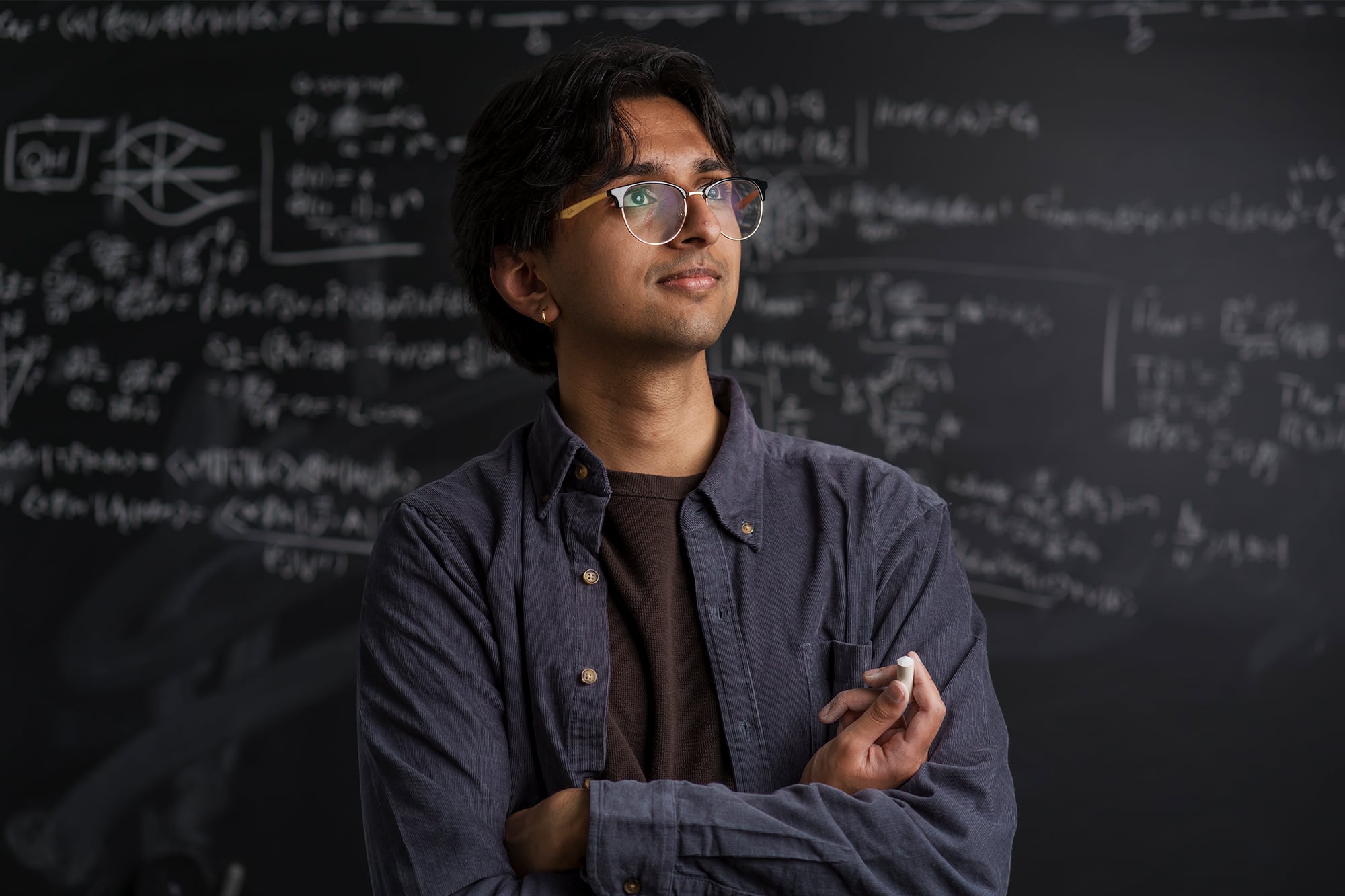
Patel sees mathematics and chemistry as tools to understand condensed matter physics. (Photo by Lathan Goumas, University Communications)
“My knowledge of inorganic chemistry helps me to understand the models used throughout condensed matter physics,” he said.
Patel said he uses mathematics as a tool to help him describe the properties and symmetries of physical systems. Patel combines the two subjects in his most recent research in condensed physics, which explores the electronic structure and symmetries of carbon nanotubes and in altermagnets.
“In terms of his preparation, abilities, attitude, dedication and research potential, Ishaan is one of the strongest students I have ever encountered, including graduate students,” Eugene Kolomeisky, an associate professor of physics, said. “He is a natural-born physicist with a critical and creative mind. It would not be an exaggeration to state that he loves solving problems. Every now and then his solutions to homework problems are more elegant than mine.”
Kolomeisky said Patel sometimes attends his office hours to hear the advice given to other students.
“He simply listens to what other students are concerned about, using every opportunity to learn,” Kolomeisky said. “I have never seen a student that hungry for knowledge.”
Harman said Patel quickly learned a variety of new techniques required for his research project.
